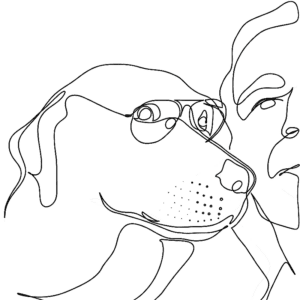Matter and form are to the sacraments what money and a purchase agreement (contract) are to buying a house. These two elements (money/contract) are the minimum conditions for a legal act and allow the transfer of a thing from one owner to another.
Sacraments work in a similar way. Matter (material or tangible element) is the substance through which the sacramental act takes place, while form (formula, words or prayers) conveys the meaning. These two elements establish the validity – that is, the legal ownership – of a sacrament.
The Particulars of Matter and Form
Regarding matter:
- Sometimes sacramental matter is actually a material substance (like water for Baptism or bread and wine for the Eucharist);
- But sometimes “matter” is a spiritual act or acts (like the acts of a penitent in Confession or the consent of the couple in Matrimony);
- In either case, the matter is something real, something tangible, that is the means by which the sacramental action takes place.
Regarding form:
- Sometimes the form is a simple subject-verb phrase using the words of Christ (“This is my body…”, “I baptize/absolve you…”, etc.);
- In these cases, the priest is acting “in persona Christi” (in the person of Christ) when he is communicating the sacrament;
- But sometimes the minister acts on behalf of Christ and His Church when he uses the formula (“Receive the Holy Spirit…”, “Through this holy anointing…”);
- In only one sacrament (Matrimony) do the ministers act in their own name when they minister the sacrament to each other (“I take you to be my wife/husband”).
With these considerations as a backdrop, let’s look at the matter and form – as well as the respective ministers – of the seven Sacraments of the Catholic Church.
Matter and Form of the Seven Sacraments
The Sacrament of Baptism
- Matter: Water.
- Form: “N., I baptize you in the Name of the Father, and of the Son, and of the Holy Spirit”.
- Ordinary Minister: Bishop / Priest / Deacon.
- Extraordinary Minister: In danger of death or extreme circumstances, anyone can baptize.
The Sacrament of Reconciliation (Confession)
- Matter: The acts of the penitent in contrition, confession, and the performance of satisfaction for sins.
- Form: The action of the priest in pronouncing the prayer of absolution and saying the essential words, “I absolve you in the Name of the Father, and of the Son, and of the Holy Spirit”.
- Ordinary Minister: Bishop or Priest (Deacon is excluded because he is not consecrated for the priestly ministry.)
The Sacrament of the Most Holy Eucharist
- Matter: Unleavened wheat bread and grape wine.
- Form: “This is my body” and “This is the cup of my blood” (These are the essential “words of institution” of the Last Supper.)
- Ordinary Minister: Bishop or Priest (for consecration); Deacon (for distribution)
- Extraordinary Ministers of the Eucharist: Those who are trained and officially delegated to distribute the Eucharistic (but not to consecrate).
The Sacrament of Confirmation
- Matter: The Oil of Chrism and the laying on of hands.
- Form: “N., be sealed with the gift of the Holy Spirit”.
- Ordinary Minister: Bishop or Pastor of a parish at Easter.
- Extraordinary Minister: Priest (with delegation of the bishop).
The Sacrament of Holy Orders
- Matter: A baptized male.
- Form: The long, consecratory prayer of the ordination ceremony.
- Ordinary Minister: A bishop.
The Sacrament of Matrimony
- Matter: The mutual consent of the couple and their promise to live together as husband and wife in a lifelong union.
- Form: “I take you…” (spoken as a vow) or “I do” (spoken as an affirmation of the vow spoken by the representative of the Church).
- Ordinary Minister(s): The baptized man and woman who give the consent.
- Note: The presence of a bishop, priest or deacon plus two witnesses are also required for a valid marriage of two Catholics.
The Sacrament of Anointing of the Sick (Extreme Unction)
- Matter: Anointing with the Oil of the Sick and laying on of hands.
- Form: “Through this holy anointing may the Lord in His love and mercy help you by the grace of the Holy Spirit, and may the Lord who frees you from sin, save you and raise you up.”
- Ordinary Minister: Bishop or Priest (Deacon is excluded because he is not consecrated for the priestly ministry.)
For a 2-page PDF of this short article, click on the link below or send an email to the author at peterdarcywriter@yahoo.com with “Sacraments” in the subject line.
